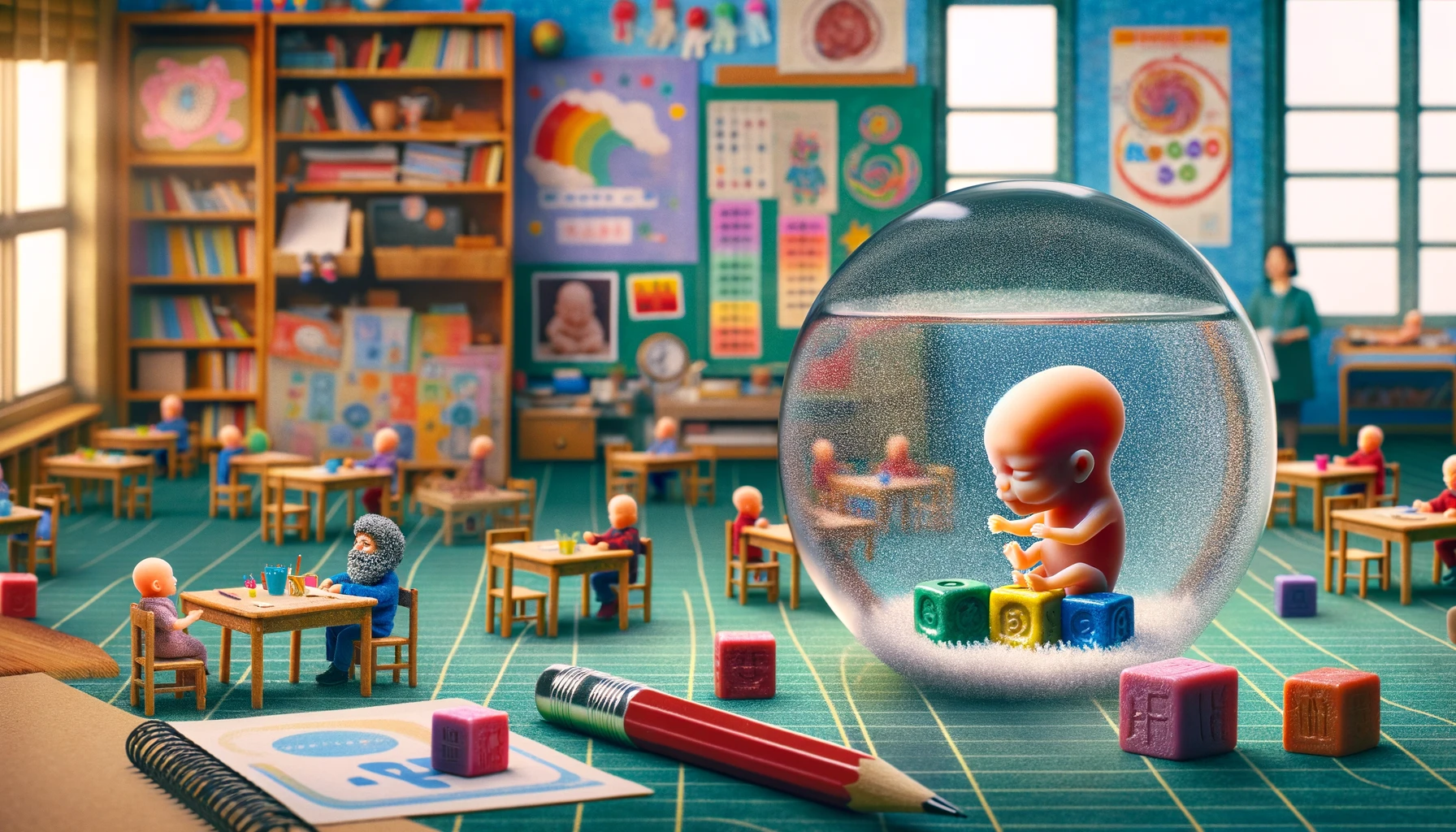The GOP has taken its commitment to the “unborn scholar” to new heights, following Nikki Haley’s endorsement of recognizing embryos as babies. The latest policy proposal suggests that kindergarten classes should begin at conception, a revolutionary move that aims to catapult the United States to the forefront of prenatal education.
The Dawn of Prenatal Kindergarten
This groundbreaking initiative seeks to enroll embryos in kindergarten, arguing that the path to academic excellence begins long before birth. “Why wait until birth to begin learning?” posited one GOP strategist, outlining plans for a curriculum that includes “In Utero Arithmetic” and “Amniotic Fluid Art.”
Adapting Classrooms for the Unborn
School districts nationwide are now faced with the monumental task of reimagining the traditional kindergarten classroom to cater to their newest, albeit prenatal, students. Special pods designed to transmit educational content directly to the womb are being developed, with prototypes featuring classical music for math lessons and soothing narrations of the alphabet.
Educational Equity Starts Early
Proponents of the initiative argue that this early start is essential for closing the educational gap before it even begins. “It’s about equity,” explained an advocate. “We want every child, no matter their developmental stage, to have the same opportunity to succeed.”
A Syllabus for Success
The proposed syllabus for prenatal kindergarten includes:
- “Womb Wellness”: A holistic approach to health education, teaching embryos the importance of a nutritious diet (via maternal consumption).
- “Pre-Birth Poetry”: Introducing unborn students to the rhythms and rhymes of language, fostering a love for literature from the earliest stages.
- “Quantum Quilting”: An advanced take on arts and crafts, designed to stimulate spatial awareness and fine motor skills through vibrational patterns.
Challenges and Controversies
Despite the enthusiasm, the initiative has sparked debate among educators, parents, and medical professionals. Critics question the logistics of assessing educational progress pre-birth and the ethics of mandatory enrollment for the unborn. “How do you grade an embryo on participation?” asked one perplexed teacher.
Looking to the Future
As the United States embarks on this ambitious journey into prenatal education, the world watches with bated breath. Will kindergarten for embryos prove to be the key to unlocking unparalleled intellectual prowess, or will it be a step too far in the pursuit of academic achievement?
In the end, only time will tell if the next generation of scholars will emerge from the womb reciting Shakespeare and solving complex equations. Until then, the debate over embryonic education continues to divide, intrigue, and inspire.

